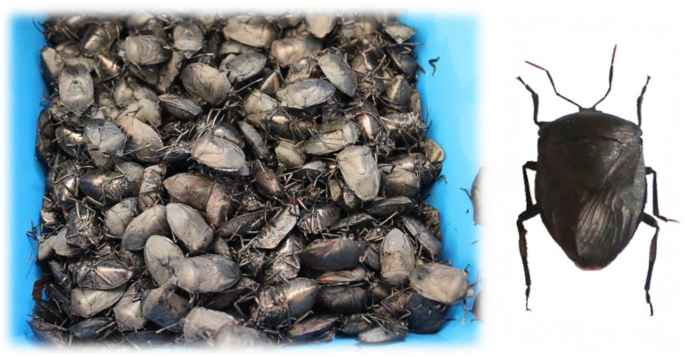Researchers at the Ashoka Trust for Research in Ecology and the Environment (ATREE) in Bengaluru have made a remarkable discovery: three new species of edible insects traditionally consumed by indigenous communities in North-East India. This finding highlights the importance of preserving traditional knowledge about edible insects, many of which are still under-documented despite their vital role as food sources.
The Importance of This Discovery .
This research has catalogued over 500 species of edible insects, underlining their cultural and nutritional importance in local diets. The identification of these new species signifies a growing acknowledgment of entomophagy—the practice of consuming insects—and its potential as a sustainable food source.
Meet the Newly Identified Species
The newly identified insects belong to the genus Coridius and are part of the Dinidoridae family. These bugs, which range from 15 mm to 25 mm in size, primarily feed on plant sap. The researchers employed a thorough approach to identification, combining genetic analysis, physical measurements, and classical taxonomy. The newly discovered species are named:
- Coridius adii
- Coridius esculentu
- Coridius insperatus
Addressing Health and Ecological Concerns
While some edible insects are associated with health risks, such as neurotoxic reactions that can cause symptoms like photophobia (light sensitivity), this study underscores the necessity for more research into the safety of consuming various insect species. Additionally, it emphasizes the need to document and preserve indigenous knowledge about these insects. By doing so, local communities can continue to manage their resources effectively while honoring traditional practices.
Globally, about two billion people include insects in their diets, with over 2,000 species recognized as edible. This research advocates for the promotion of insects as a sustainable protein source that could complement traditional livestock farming, which often has significant environmental impacts.
About the Ashoka Trust for Research in Ecology and the Environment (ATREE)
- Founded: 1996
- Mission: ATREE focuses on ecological research, policy analysis, and community engagement.
- Approach: The organization uses interdisciplinary methods to address environmental challenges.
- Conservation Efforts: ATREE is committed to protecting wildlife and plant species.
- Key Projects: The trust is involved in initiatives related to climate change, conservation biology, and urban ecology.
This discovery not only enriches the field of entomology but also reinforces the importance of blending scientific research with traditional ecological knowledge to promote sustainable food practices.












